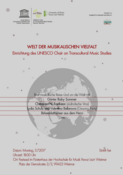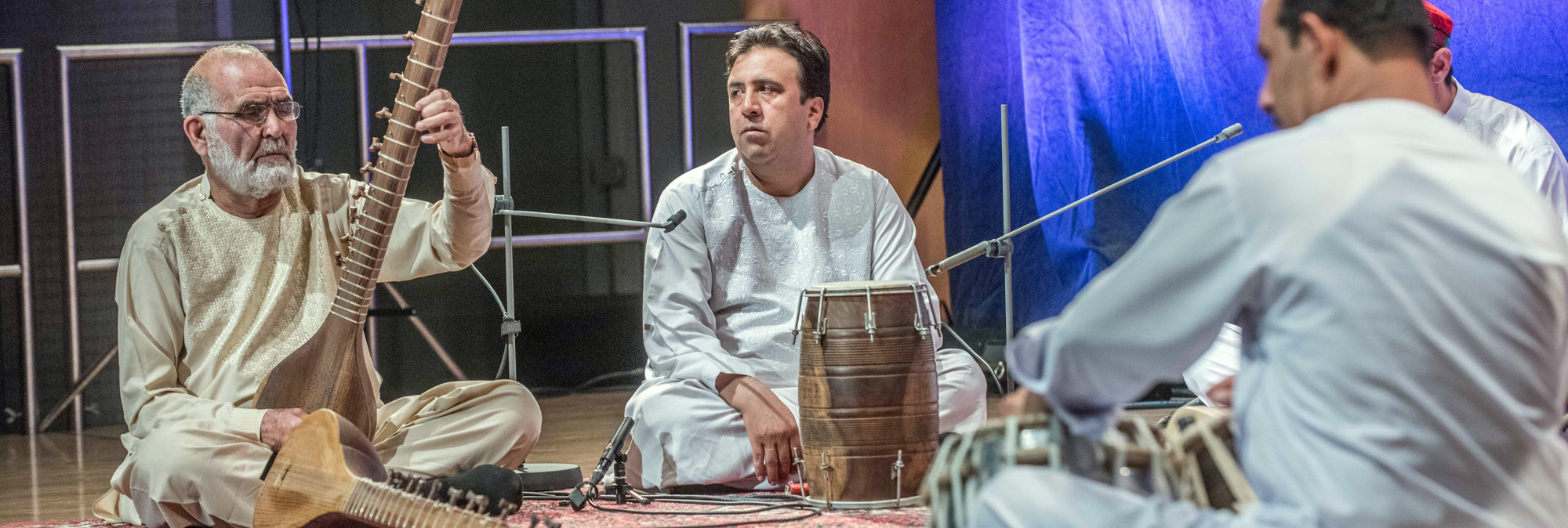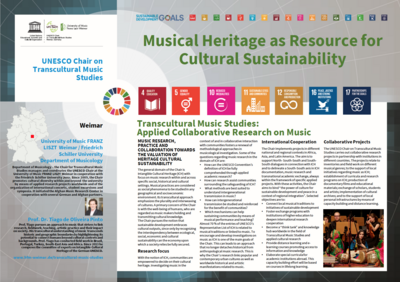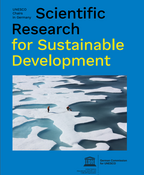The Chair
The Chair on Transcultural Music Studies has existed since 2009 and was elevated to a UNESCO Chair in 2017. It is part of the Institute for Musicology Weimar-Jena, which belongs to the Friedrich Schiller University Jena and the FRANZ LISZT University of Music Weimar.
The UNESCO Chair on Transcultural Music Studies (TMS) is dedicated to music and its study from a cultural studies perspective. All musical styles existing worldwide are of interest. As a UNESCO Chair, it represents the area of intangible cultural heritage (UNESCO Convention of 2003). Music as a living, intangible cultural heritage as defined by UNESCO is here for the first time an integral part of the professional orientation of a musicology chair.
At the UNESCO Chair on Transcultural Music Research, music-making and its reception are studied in a broader social and cultural context. The music research, which is oriented towards cultural theory and anthropology, is concerned not only with documentation, analysis and mediation, but also with emphatically application-oriented approaches based on international research and exchange projects. The chair already cooperates with a network of scientific and cultural institutions in Asia, Africa, Europe and Latin America.
UNESCO Chairs fundamentally pursue the objective of making a contribution to peace and sustainable development through their academic work and in teaching within the professional mandate of this organisation.
South-South dialogue
Joint research projects on different aspects of local musical traditions are currently being carried out in Afghanistan, Ethiopia, Bangladesh, Brazil, Germany (Thuringia and Saxony-Anhalt), Cuba, Tanzania, Thailand, South Africa and Ukraine. The Chair has initiated an active South-South network in the field of research, documentation and promotion of intangible and musical cultural heritage. This network also supports the professional evaluation of the worldwide effects of the "UNESCO Convention for the Protection and Preservation of the Intangible Cultural Heritage" (2003).
An international network
The Weimar UNESCO Chair is part of a network of research institutions that supports and accompanies the work of UNESCO with scientific expertise. In research and teaching as well as in international cooperation, UNESCO Chairs generally pursue the objective of contributing to peace and sustainable development through their scientific work within the organisation's professional mandate. The importance of the network of UNESCO Chairs is increasing once again against the backdrop of the current 2030 Agenda for Sustainable Development.

Chairholder
Tiago de Oliveira Pinto (Weimar-Jena/ São Paulo) ist seit 2009 Inhaber des Lehrstuhls für Transcultural Music Studies an der Hochschule für Musik Franz Liszt Weimar, seit 2017 Direktor des Institutes für Musikwissenschaft Weimar-Jena. In 2016 wurde sein Lehrstuhl zum UNESCO Chair erhoben.
Promotion 1990 an der Freien Universität Berlin in Musikwissenschaft und Kulturanthropologie. Wissenschaftlicher Mitarbeiter am Internationalen Institut für Traditionelle Musik, Berlin, von 1990-1996. Dort gab er u.a. mit die UNESCO Collection heraus, eine renommierte Schallplattenreihe, die für die UNESCO produziert wurde. Bis 2002 war Tiago de Oliveira Pinto in der Kulturabteilung des brasilianischen Außenministeriums u.a. als Direktor des Brasilianischen Kulturinstituts in Deutschland tätig. 2001-2006 hatte er eine Professur am Institut für Sozial-Anthropologie der Universidade de São Paulo (USP) inne. Der Postgraduierten Kommission dieses Instituts gehört er bis heute an. 2006–2008 lehrte er an der Universität Hamburg.
Zahlreiche Feldforschungen in verschiedene Regionen der Welt sind in den Publikationen von Prof. de Oliveira Pinto dokumentiert. Seit den 1990er Jahren wirkt er auch als Kurator von Kultur- und Kunstausstellungen und hat zahlreiche Musikproduktionen und Klanginstallationen konzipiert.


